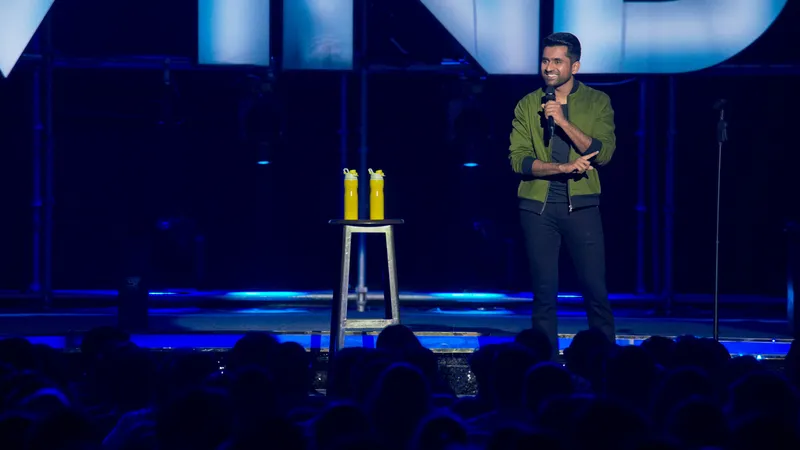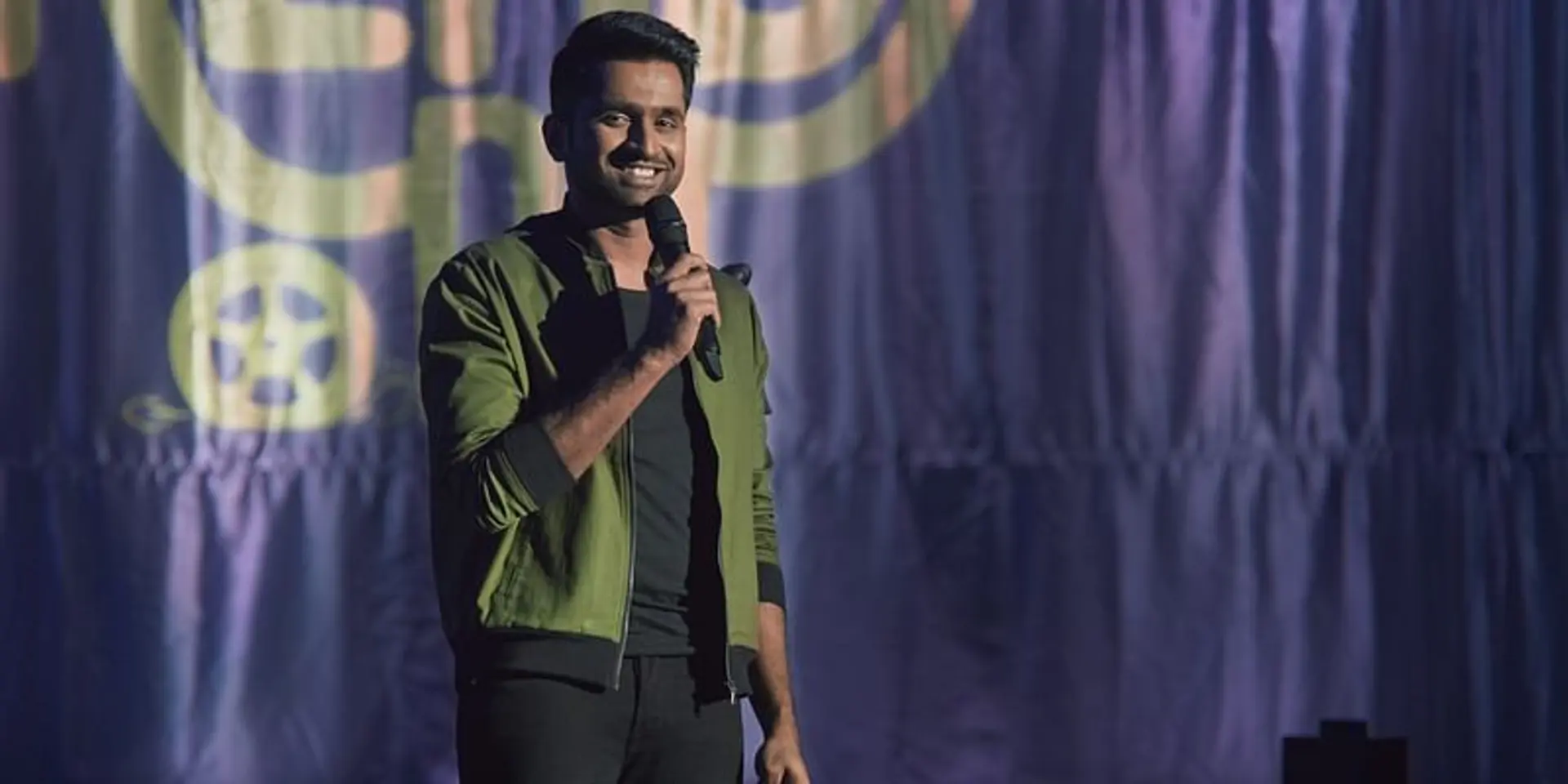It’s time to Get Ready Da, as stand-up comic Aravind SA leaves Amazon Prime Video viewers in splits with new video
After his highly successful first show, Madrasi Da and his particular brand of Lungi Dance that went viral, stand-up comic Aravind SA’s second show I Was Not Ready Da is now available on Amazon Prime Video.
Three years ago, I attended the second show of I Was Not Ready Da, stand-up comic, Aravind SA’s second offering in Bengaluru. His first show, Madrasi Da, that had debuted on Prime had become extremely popular, especially his rib-ticklingly funny take on Honey Singh’s Lungi Dance from the film, Chennai Express.
A funny and fitting rebuttal to the North’s stereotypical notions of the South, Aravind’s version had garnered over a million views overnight catapulting him into the limelight, all over India.
Sitting in the front row with my son was not a brilliant idea as I realised just a moment after the show began. Aravind proceeded to roast both of us throughout the evening, making us the guinea pigs of all his jokes ranging from Tinder to strip-clubs to “egad, how would you bring your mother along to this?”. We laughed along, the enthusiasm and energy infectious and by the end of the two-hour show, we had earned some fame (or rather notoriety).
Humour is hard work

Aravind SA is incredibly funny, there’s no doubt about it. But his seriousness about his brand of comedy is an eye-opener. He says comedy is not all about laughs and stand-up is a painstaking process, one that involves hundreds of hours of hard work to make people laugh for two hours.
After more than 100 shows, I Was Not Ready Da released on Amazon Prime last month. I ask Aravind how he feels.
“It’s been a privilege to do the show for so long especially when it’s not a common theme in our culture to support a live performing artist for this amount of time. The internet era has given us more options that make us reluctant to step out, so in that context, I am grateful for this opportunity,” he says quite modestly.
I cannot resist but take a dig by quoting a line from his show, “Journalism has gone to the dogs when they take a comedian’s opinion seriously!” Has his view changed?
Aravind smiles and is quick to point out it’s a “mere present feeling, not one I have had for a long time”.
He is quite thrilled by the response to his show on Amazon Prime. “It’s been very kind and heartwarming to see how a standup special can generate a lot of excitement and positive vibes for people,” he says.
Comedy is language-specific
With his own version of Lungi Dance going viral and the subsequent shows in different cities, does he feel he has attained pan-India popularity?
“I wouldn’t be able to tell you that,” he says, adding, “Maybe I will know only with my next show. After Madrasi Da, I did notice a significant difference, in the profiles of people turning. I put it down to Amazon Prime’s ability to reach people’s homes and make us language and region-agnostic.”
But does he believe South Indian comics need to work harder to establish an all-India presence?
“I believe comedy is very language-specific. A hero might have an aspiration that cuts boundaries. So, it really comes down to what the end objective is. If the goal is to cut across boundaries, then it’s much harder. You would think it’s much harder when you are not sharing the same language, so I guess we need to bring the South Indians together and celebrate each other a lot more.”
Aravind says the writing process is long winding, one replete with many painstaking revisions and a continuous quest to present the best content.
“You need to have an obsession with it. This leads to a continuous quest for pruning, writing, and rewriting, a process that is oriented towards making it better. I start thinking out aloud, write for three-hour sessions in the morning that would crystallise into a four-minute act in a couple of weeks. I also perform these chunks on the side to get an idea of whether it’s ready to hit the floor. Both happen simultaneously and it takes me 4-6 months to formulate a new special from scratch,” he explains.
Relatability is key
Is there a right mix that works? Aravind believes comedy has to be an expression of your honesty and whatever excites you. “There should be relatability. If you feel a particular style is not working with the audience, you need to have the strength to cut it out. You shouldn’t get attached to what you write, be ruthless with it and the best version will last.”
With comedy increasingly becoming a medium to take a stand on various issues, is it also becoming mandatory? “Are we really apolitical,” asks Aravind. “As responsible individuals, all of us are political in some way. I think everybody should bring their own responsibility to their game.”
In his show, Aravind says that he never reads comments on his videos on YouTube. Is it “I don’t care” way to deal with criticism?
“I deal with trolls as I deal with corona now. I know it’s there somewhere I know some people are getting affected by it, there are days when I feel I could be affected by it, but you stick to your “safety measures” and hope they will see you through. That’s one part of dealing with it. But I am also highly critical of myself and am always looking to improve myself. I believe if you have a good support system through whom you can filter stuff, you’ll be fine.”
At the end of every show, Aravind thanks his mother for “not coming to the show” and letting him and his brand of humour be.
However, for his 100th show, the crew pulled off a big surprise by bringing his mother to the show and during his usual thank-yous, let him know she was in the audience.
“It was the first time she was attending a standup show. You can see it after the end-credits. This time the joke was on me,” he says, as he signs off.
Edited by Asha Chowdary








